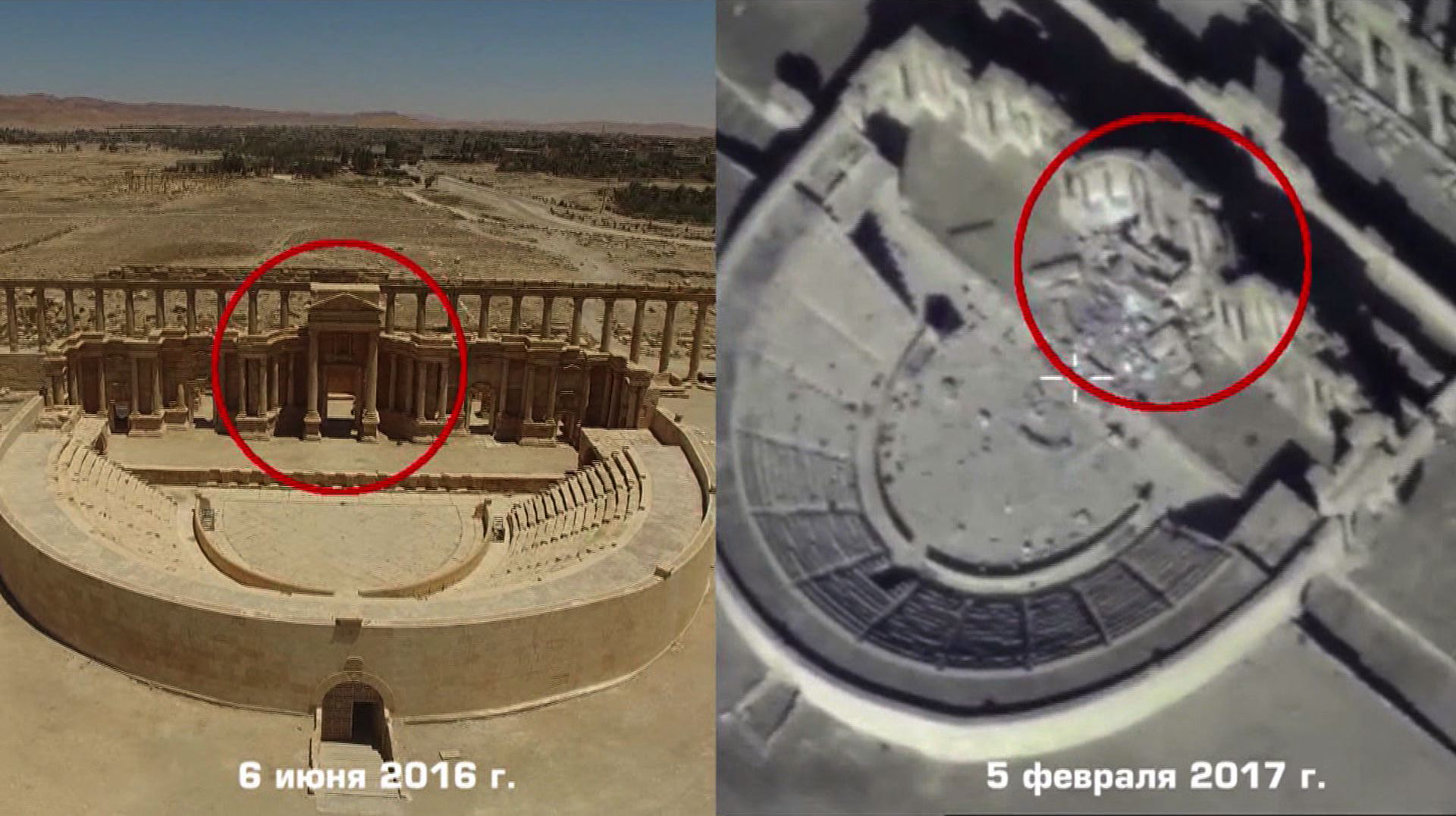
MOSCOW, Russia (AFP) — Russia’s military on Monday released drone footage showing more destruction of treasured monuments by the Islamic State in Syria’s Palmyra since jihadists recaptured the UNESCO World Heritage Site late last year.
The black-and-white video dated February 5 shows part of the Roman amphitheater reduced to rubble and the tetrapylon, a 16-columned structure that marked one end of the ancient city’s colonnade, wiped out.
“The pictures clearly show that the terrorists blew up the proscenium — the central part of the ancient Roman theater — and the columns of the tetrapylon,” the Russian defense ministry said in a statement.
The new wave of destruction was first announced last month by Syria’s antiquities chief, with the UN’s cultural agency blasting it as a “war crime” and “cultural cleansing”.
IS fighters scored a major propaganda coup by recapturing Palmyra from the Syrian government in December, some nine months after they were ousted from the historic site.
Before being forced out of Palmyra in a Russian-backed offensive in March, IS razed world-famous temples and tower tombs at the site.
The tetrapylon, built during the rule of the Roman Emperor Diocletian in the 3rd Century AD, consisted of four sets of four pillars each supporting massive stone cornices.
The monument had suffered considerable damage over the centuries and only one of the 16 pillars was still standing in its original Egyptian pink granite. The rest were cement replicas erected by the antiquities department in 1963.
The Roman amphitheater dates back to the 1st Century AD and was used by IS for public executions during its occupation of the city between May 2015 and March last year.
The loss of Palmyra came as regime forces and their Russian backers were focusing on the fierce fighting for rebel-held eastern Aleppo, which the government finally retook in December.
Russia has been flying a bombing campaign in support of Syrian leader Bashar al-Assad since September 2015.
© Agence France-Presse







